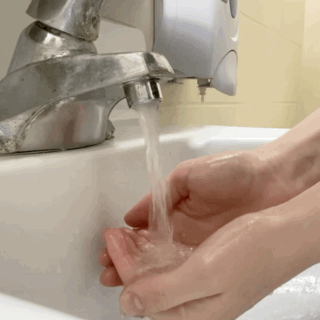People are doing what they can to stay healthy, but what about their pets?
Dr. Phyllis Sill is a veterinarian at Roscoe Veterinary Clinic. She says if you want to keep your dogs safe, there are certain things you shouldn't do:
"Don’t let your dog suddenly go on a long run or a long walk if it hasn’t been conditioned to do so," she said. "They are probably going to end up with lameness issues or injuries." She continued, "Don’t get a group of dogs together, they might fight."
Sill said it is important to think about things your dog can eat or swallow, like chocolate or the sugar substitute xylitol. "Try to keep them up and away," she warned, "because if dogs get into sugar-free gum, it can kill them."
The Roscoe Veterinary Clinic is considered an essential business; therefore it remains open amid Governor J.B. Pritzker's "stay-at-home" order. But, Sill said, even though they are open, they are only admitting patients with serious conditions.
"We are looking at patients who have growths or tumors that need to be removed," she said. "We are doing dentistries where our patients have uncomfortable mouths and maybe have teeth that need to be removed in order for them to eat better and do better," she added. "We are continuing to take X-rays and diagnose things that are going on orthopedically."
Sill gave examples of services they are not providing right now:
"We're trying to not have patients come in for things like a toenail trim," she said, "or vaccines that are maybe just coming due. We're trying not to have grooming type appointments except if the dog has a history of anal gland issues and we know the dog is going to be uncomfortable."
Sill said the practice now only allows one animal at a time in the building and staff are practicing curbside service with strict social distance guidelines. "We get as much of a history over the phone as we can," she said, "before we have a technician go out to the car. Then the technician brings the animal into the building."
Sill said clients aren't allowed inside the clinic unless it's for euthanasia. "Euthanasia is an extremely, extremely important part of [our] practice," she said. "People need to know that their animals went peacefully and the animals need to know that they were loved all the way until the end."
But other than that, clients may not enter the clinic. Sill said this act of social distancing helps keep the staff, public, and animals healthy. "It's nothing personal," she said. "We can't make an exception. If one person gets sick on our staff, we have to close our clinic."
Sill said most people understand why they are not allowed inside with their pets, but some do not. "They think we are being ridiculous," she said. "And that's just the one thing people have to understand -- that we want this to go away. We want to be done with it. This is not the way we want to process long term."
Sill said there are things people can do to eliminate human contact. Rather than hand a credit card to a technician, make the payment over the phone. "Think of all the times a technician has to either glove, de-glove, or just scrub in between each transaction," she said. "I promise you there is no identity theft whatsoever. We are just trying to do a transaction without touching cash or checks." She said over-the-phone payments will also speed up the process because it means less before and after santitizing.
Another thing people can do is not engage in a conversation during curbside pickup. "I don't want my technician talking through a rolled down window," she said. "It offers no protection whatsoever. So please, please, please, talk to us on the phone."
Looking ahead, Sill said, "I think this will be an unusual summer. I don't think this is going to easily and quickly go away. I think we're going to be dealing with this for months on end."
Even so, she said there isn't any need to panic. "We're going to get through this. I think everybody is trying to do what they're supposed to do."
And, Sill said, the main goal for animals remains the same as it is for other family members: Stay out of the emergency room.


